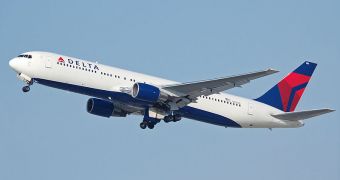Airline companies are keen on expanding their profit margins, and such an attitude comes in favor of the environment. Officials from Boeing were excited to declare that, during its first commercial flight, their new 787 Dreamliner manage to showcase a 20% improved fuel-efficiency, compared to Boeing 767.
On a global scale, experts estimate that the air traffic will triple its present rates, until 2030. Such a phenomenon would imply the growth of CO2 emission, which have been permanently rising since 1990.
Major companies on the market try to optimize their activity by controlling air traffic, monitoring and improving flight routes and schedules, decreasing the weight and compelling their passengers to do the same thing when it comes to their luggage.
When talking about the fact that air traffic will triple its numbers in the next 20 years, officials say that they will be forced to increase the level of sustainability of their services.
More air traffic implies a higher demand for Kerosene as aviation fuel, which will eventually make airline companies develop better aircrafts, which highlight features that make them fuel-efficient, such as the 787 Dreamliner, A380 and the expected A350 series launched by Airbus.
As a viable and reliable substitute for Kerosene, companies struggle to implement biofuel usage.
Representatives from major airline enterprises indicate that the innovative technology showcased by future Boeing 800 or Airbus 400 series won't enlighten our next 20 years and won't improve air quality because they won't be delivered on time.
Fuel-efficiency innovations and the implementation of biofuels on an international scale might bring us closer to solving the matter of the damaging carbon footprint.
Experts even dare to say that 2003 will bring along lower CO2 emission rates, but they also take into consideration that air traffic will expand substantially, generating more air pollution than it does today.
A balance can be achieved only by cutting unnecessary polluters out of other fields of activity, which don't show such evident signs of progress.

 14 DAY TRIAL //
14 DAY TRIAL //